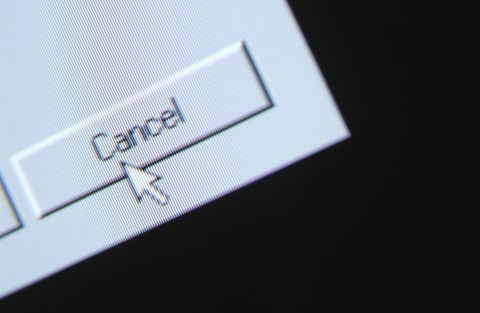
You’re studying English, right? Or was it Arabic?
When you look at certain types of Arabic words, it can be hard to notice the difference.
The English language has left its permanent mark on Arabic, just as it has on many other languages around the world. In every Arabic-speaking country, people at all levels of society mix English with Arabic from time to time. Even people not fluent in English do some mixing now and then.
How exactly does this mixing work? What’s involved, and what should an Arabic learner look out for? That’s exactly what you’ll find out in our guide to English words in Arabic!
 Table of Contents
Table of Contents
- The Basics of English Words Used in Arabic
- Arablish Examples
- English Loanwords in Arabic
- How to Pronounce Brand Names in Arabic
- Arabic Words in English
- Outro
The Basics of English Words Used in Arabic

As in many societies the world over, English is considered a prestigious language in Arabic-speaking countries. It outpaces French as the most-learned foreign language by a significant margin, and a foreign traveler to the capital cities anywhere between Morocco and Iraq can expect to get around pretty well using English.
Part of this popularity is because of the perceived economic or cultural benefits that come with speaking English as a second language, though necessity also plays a huge role here.
English speakers are spoiled when it comes to global communication. The English language has always been a primary language of software development, and as such, electronic devices tend to support English first and foremost. Arabic has sadly been left far behind in this area. It took a while for popular operating systems to start supporting Arabic, and even in 2020 there are significantly fewer fonts, programs, and websites with Arabic display options.
Therefore, computer usage in Arabic is intrinsically linked with English. Not just in the typing of Romanized Arabic words using the Latin alphabet, but also in the vocabulary of computers, software, and the internet.
In a similar sense, the language of business is also linked with English. With the rise of globalization and internationalization, many firms based in Arabic-speaking countries are used to using English as a common language when dealing with other companies.
And, following the natural progression of the two points mentioned above, prestige and internet culture have led to “new” and “cool” companies readily adopting marketing and business terms from English wholesale—and expecting to be understood.
Naturally, when a word is adopted into another language, there’s not always a perfect equivalent of the original meaning.
Let’s look at a few examples of English words in Arabic whose meanings have shifted slightly along the journey.
Arablish Examples

There are a few domains of language, such as business and technology, where English loanwords have been adopted into Arabic with slightly different meanings. Here are some of the common ones you’ll hear:
1. “Message” / مِسِج
When you use the word “message” in English, you might mean any number of things: a short note left on someone’s desk, a popup box on a computer program, a voice message on an answering machine, or of course a text message. The Arabic word refers specifically to phones and internet messages. Because the meaning is preserved in these contexts, it would be easy to assume that all the senses of the loanword have been carried over to English, when this is not the case.
2. “Goal” / جول
In a similar way, the word “goal” in English as spoken by Arabs only refers to a sports goal. Since there are other words in the business sphere, like “creative,” that have been totally adopted into modern marketing Arabic, it’s reasonable to assume that a phrase like “meet your quarterly goal” could be used directly in Arabic as well as in English.
How do you learn something like this in depth? Well, you pick it up through immersion. Articles like this are only going to have a couple of examples of these at a time, and the meanings of loanwords change fast in today’s world. There is nothing better than firsthand experience to help you get the hang of how to use something as complex as ‘Arablish.’
English Loanwords in Arabic

Now let’s flip the script a bit. Here are some words that either roughly match the Arabic sound system already, or that have been modified slightly for easier pronunciation.
These pronunciation features allow English words to enter the Arabic language more naturally than if they stood out as “foreign words.” Gulf Arabic speakers, in particular, feel quite at home using the following words.
- شَيِّك (chayek) – “review”
Note that this first one does not mean “check a box.” It only means to look something over for mistakes or suggestions.
- أَكَنسِل (akansal) – “cancel”
It’s possible to use this word as an equivalent to the English “to close a program.”
- أَفَرمَت (afarmat) – “format”
- أَدَلِّت (adallet) – “delete”
Next, the words “creative,” “confirm,” and “focus” are frequently used in business Arabic—to such an extent that foreign learners can become frustrated at the lack of pure Arabic they get to hear! Here are two example phrases:
First is an example of how “creative” would be used in Egyptian Arabic.
الديزاينَر الجِديد كِريِيتيف أَوِي.
el-dīzāynar el-gedīd keryeītīv ʾawī.
The new designer is so creative.
Here is an example of what would be said in a small conversation in an office in Gulf Arabic:
رَح نِنشُر التَحديث بَعدما يِشَيِّكو المُدير.
raḥ nenšor el-taḥdīs baʿdmā yešayyeko el-modīr.
We will publish the update after the manager checks it.
How to Pronounce Brand Names in Arabic

In addition to loanwords, branding often undergoes serious translation and localization as well. Localization as a trend—and even as an academic field—has never been more popular than it is today. More and more brands want to connect with the world on the other side of language barriers.
Many brands have been localized into Arabic with expert logo designers creating great-looking Arabic versions of well-loved logos. Naturally, when people read these words aloud, they’re going to pronounce them in Arabic, which may be odd to hear if you’re only used to the originals.
One of the classic examples of this is “Pepsi.” The Arabic language doesn’t have an aspirated P sound like English does, so this is actually pronounced bebsi in Arabic. If you’re speaking fluent Arabic and you pronounce this word with the original English pronunciation in the middle of a sentence, it may be a bit jarring or sound like you’re being overly correct!
Here are some other examples of Arabic pronunciations of foreign brand names:
McDonald’s
ماكدونالدز
makdonaldz
Olympics
الأولِمبياد
al-olimbiyyad
Facebook
فيسبوك
feisbuk
iPhone
آيفون
ʾāyfūn
In the 1980s and 1990s, it was pretty rare in big metropolitan areas to see an Arabic name for a new and “modern” business, but now there’s a trend toward Arabization of business names. Picking a business name in Arabic is a big deal for companies that want to go global but still want to retain something that speaks to their mother tongue. As Arabic popular culture takes greater hold on the world, the Arabic language is becoming more accessible and will hopefully be even trendier in the future.
Arabic Words in English

Loanwords don’t only flow one direction, you know. And Arabic has had a huge start on English in that regard.
Most Arabic loanwords in English are totally integrated into the language, since they were adopted many centuries ago and have undergone the same vowel shifts and usage changes as native English words have.
One such word is “cotton,” originally from the Arabic word qutun, which was brought to England around the time of the Crusades. Later on, during the Middle Ages and Renaissance, the words “algebra” and “algorithm” entered the English language. Their al- prefix gives them away as Arabic words at first sight. Another example is “elixir,” from the Arabic word al-iksir, which has undergone one of those vowel changes we mentioned.
Words related to Islam and food are among the most common Arabic words used in English today. These include hajj (pilgrimage to Mecca), fatwa (religious decree), Fattoush (Levantine salad), and falafel (balls made of chickpeas).
Outro
When it comes to something as slippery as loanwords, it’s hard to really sit down and study vocabulary.
Sure, you can read articles like this one to get an overview, but it mostly has to come with time. After all, what’s in vogue now may not be nearly as popular in the future.
For that reason, the best way to pick up natural use of English loanwords in Arabic is to have a good understanding of standard Arabic first. Only then should you branch out into consuming more songs, TV, and movies that have more colloquial Arabic in them (complete with loanwords).
And the best way to get this solid knowledge base is to use ArabicPod101, the world-famous podcast-based Arabic course! We’ll lead you step by step from basic to advanced Arabic with vocab lists, flashcards, video lessons, and more, including interesting cultural articles like this one. Sign up now and see just how natural your Arabic can get with ArabicPod101!
Which of these English words in Arabic were you the most surprised to find out about? Are there any we didn’t mention that you think your fellow learners should know about? Let us know in the comments!










